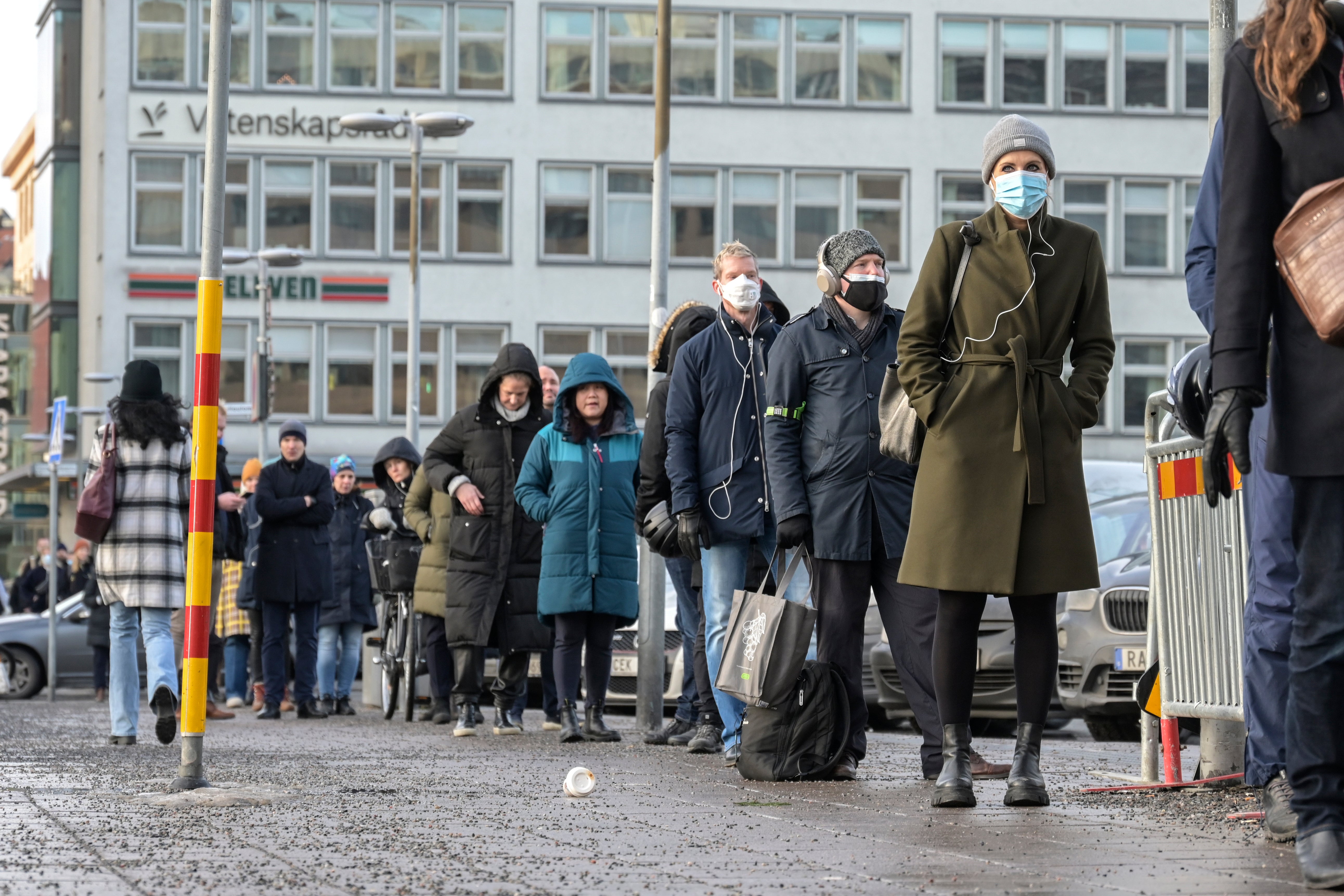Sweden extends virus restrictions; Danes likely to end them
Sweden will extend several restrictions for another two weeks while neighboring Denmark was expected to announce that it no longer considers COVID-19 as “a socially critical disease” as of next month and will remove most restrictions

Your support helps us to tell the story
From reproductive rights to climate change to Big Tech, The Independent is on the ground when the story is developing. Whether it's investigating the financials of Elon Musk's pro-Trump PAC or producing our latest documentary, 'The A Word', which shines a light on the American women fighting for reproductive rights, we know how important it is to parse out the facts from the messaging.
At such a critical moment in US history, we need reporters on the ground. Your donation allows us to keep sending journalists to speak to both sides of the story.
The Independent is trusted by Americans across the entire political spectrum. And unlike many other quality news outlets, we choose not to lock Americans out of our reporting and analysis with paywalls. We believe quality journalism should be available to everyone, paid for by those who can afford it.
Your support makes all the difference.Sweden announced Wednesday that several coronavirus restrictions will be extended for another two weeks while neighboring Denmark was expected to announce that it no longer considers COVID-19 as “a socially critical disease” as of next month and will remove most restrictions.
“We have an extremely record high spread of infection,” Sweden's Social Affairs Minister Lena Hallengren said. “The assessment is that existing measures need to remain in place for another two weeks.”
“If the situation allows it, the restrictions will be lifted after that," she said.
Karin Tegmark Wisell, head of Sweden’s Public Health Agency said the reasoning for extending the restrictions is that they expect a decline in cases in a couple of weeks. She said the Scandinavian country had 270,000 new infections in the past seven days and that “our assessment is that, during this period, at least half a million can fall ill per week.”
In Sweden which has previously stood out among European nations for its comparatively hands-off response to the pandemic, has ordered cafes, bars and restaurants to close at 11 p.m., urged people to work from home when possible and said distance learning was an option in higher education to try to combat rising COVID-19 infections.
Denmark, meanwhile, is heading in the opposition direction.
In a letter Tuesday to the Danish lawmakers, Health Minister Magnus Heunicke said he wants to follow the recommendations by Parliament's Epidemic Commission so that the "categorization of COVID-19 as a socially critical disease will be abolished as of Feb. 1.”
The letter said “this is a new epidemic situation in which a high and increasing infection does not to the same extent as previously translate into hospitalizations.” The letter was obtained by The Associated Press on Wednesday ahead of a planned press conference with Prime Minister Mette Frederiksen
It was not immediately clear what restrictions Danes will end but they likely will include the digital health pass, which now must be used to enter museums, nightclubs, cafes, party buses and to be seated indoors in restaurants.
In Denmark, people above 15 must also flash the pass when attending outdoor events where the capacity exceeds 2,000.
In Finland, Prime Minister Sanna Marin tweeted that “the government will assess the necessity of (the) restrictions” and “should consider opening low-risk cultural and sports events with a COVID pass and extending the opening hours of restaurants on a quicker schedule than was previously estimated.”
___
Follow all AP stories on the pandemic at https://apnews.com/hub/coronavirus-pandemic.